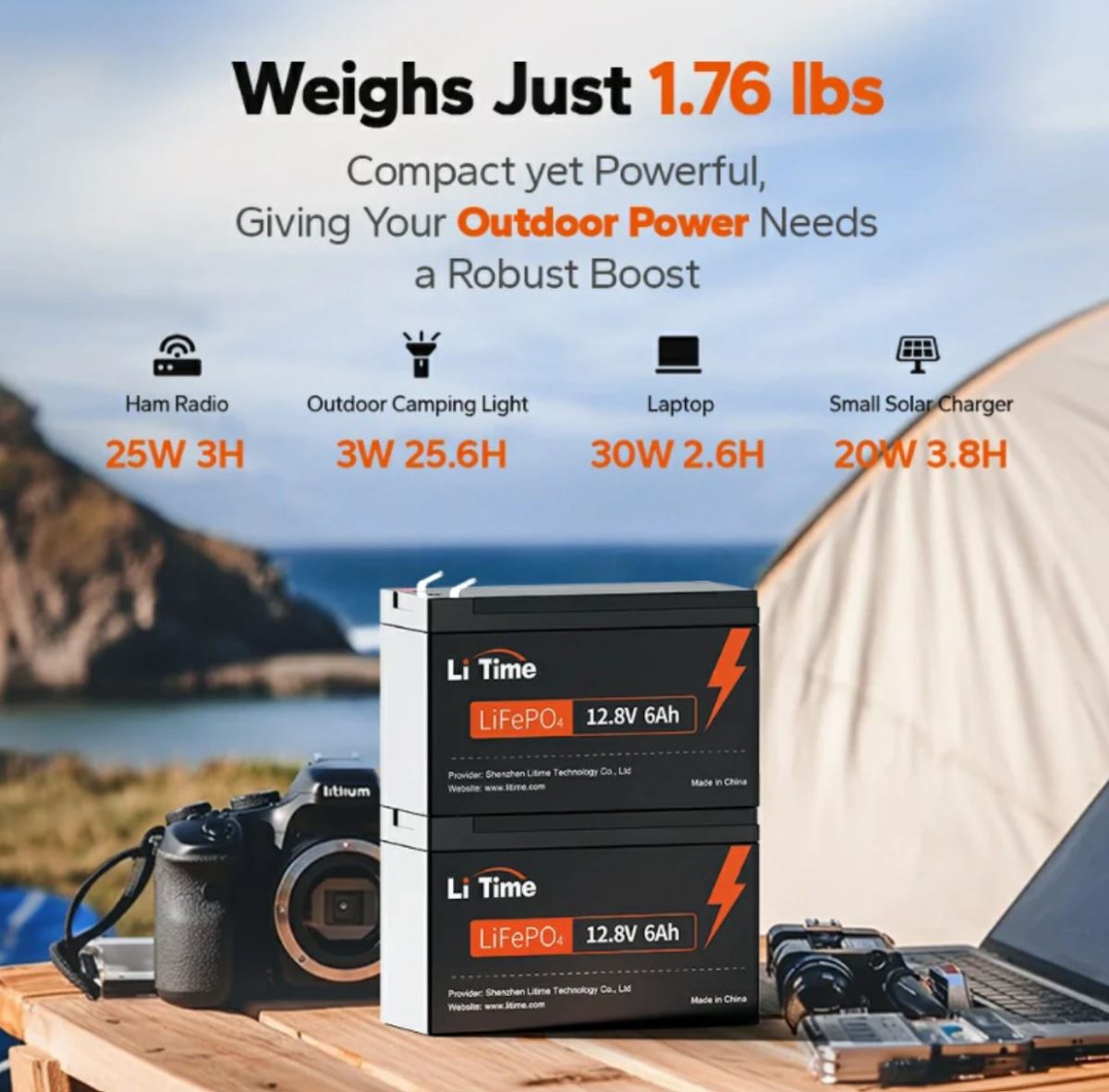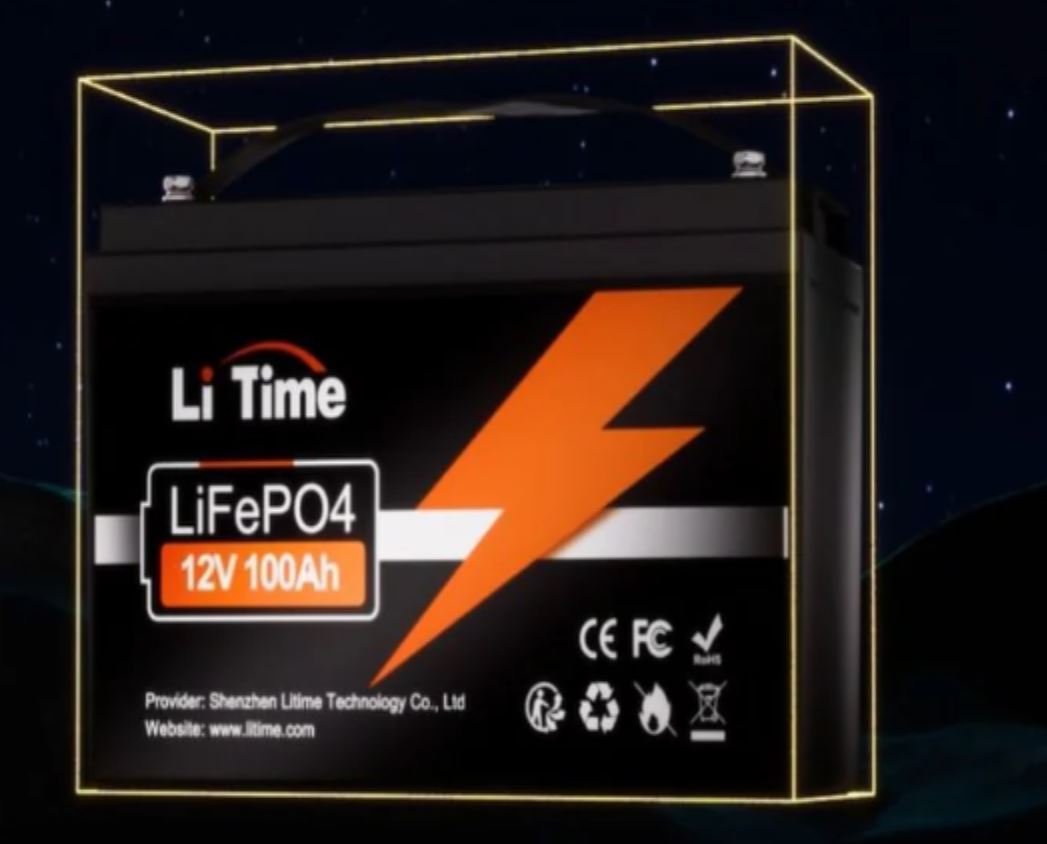Portable power has come a long way, and I’m constantly amazed by how much technology has evolved. Among the latest game-changers is the 12 volt lithium battery, quickly becoming the go-to solution for powering everything from camping gear to high-tech gadgets. It’s lightweight, efficient, and built to last, making it a clear step from traditional options.
In this article, I’ll explain why 12 volt lithium batteries are leading the charge for portable power. You’ll learn what makes them so revolutionary, how they outperform older battery types, and why they’re shaping the future of energy on the go. Whether you’re an outdoor enthusiast, a tech lover, or just someone who values reliable power, this is a trend you’ll want to keep an eye on.
What Are 12 Volt Lithium Batteries?
12 volt lithium batteries are rechargeable energy storage devices that use lithium-ion technology to deliver efficient and reliable power. They’re known for their lightweight build, high energy density, and long lifespan compared to lead-acid alternatives.
One time, while camping, my old lead-acid battery drained halfway through the night, leaving my portable fridge and lights useless. Switching to a 12 volt lithium battery solved that problem. Its consistent output and faster recharge time made outdoor trips stress-free.
Key features include:
- Lightweight Design: Reduces load for portability.
- High Efficiency: Provides stable power with minimal energy loss.
- Longevity: Can last up to 10 years with regular use.
These batteries effectively power RVs, boats, solar setups, and emergency backup systems.
Understanding 12 Volt Lithium Battery Technology
12 volt lithium batteries have transformed how portable power is stored and delivered. Their advanced design improves both performance and dependability compared to older battery types.

Composition and Chemistry
These batteries use lithium iron phosphate (LiFePO4) as their primary chemical composition. This chemistry is known for safety, long life, and stable performance. Each cell in a 12 volt lithium battery operates at 3.2 volts, and four cells are connected in series to deliver the 12 volt output. Unlike lead-acid batteries, they don’t rely on heavy metals like lead, reducing weight while improving efficiency. Lithium chemistry also resists swelling or leaking, making it safer for portable use.
Operational Mechanism
12 volt lithium batteries use a built-in Battery Management System (BMS) to regulate temperature, voltage, and current. The BMS prevents overcharging, overheating, and over-discharging, which protects the battery’s lifespan. Energy flows through an anode and cathode, while a liquid electrolyte enables lithium ions to transfer during charging and discharging cycles. I’ve used a 12 volt lithium battery for my solar setup, and its ability to deliver consistent power without sudden drops made evening usage stress-free. This reliability, paired with a rapid recharge cycle, is a game-changer for portable energy.
Why Choose LiTime 12 Volt Lithium Batteries?
LiTime 12 volt lithium batteries offer reliability, efficiency, and long-term cost savings. They’re lighter than traditional batteries, making them perfect for portable applications. With up to 4000 charge cycles, their lifespan far exceeds lead-acid options.
I switched to a LiTime battery for my camper, and it transformed my trips. It consistently provided power for all my gadgets, and recharging with solar panels was faster.
Key benefits include:
- Lightweight Design: Easy to transport for camping or RV use.
- Long Lifespan: Lasting up to 10 years.
- Built-in BMS: Protects from overcharging and temperature risks.
Their high performance justifies the investment in dependable portable energy.
Advantages of 12 Volt Lithium Batteries
High Energy Density
12 volt lithium batteries store more energy per unit of weight than lead-acid options. This makes them ideal for high-demand devices like electric bikes or portable power stations. I’ve used one during a week-long camping trip, and it powered a mini fridge, lights, and a phone charger without running out. Their efficient energy storage means fewer recharges, and they are a game changer for outdoor adventures.

Lightweight and Compact Design
These batteries are up to 70% lighter than lead-acid models, making them easier to transport. A 12 volt lithium battery weighs around 25 pounds, compared to a lead-acid alternative at over 60 pounds. This lightweight design fits well in small spaces, like an RV or boat. I replaced my old battery with a lithium one for my RV, and the reduced weight noticeably improved fuel efficiency.
Extended Lifespan
A 3,000 to 5,000 charge cycle cycle equates to approximately 10 years of regular use. Unlike lead-acid batteries, which degrade after a few hundred cycles, 12 volt lithium batteries maintain performance over time. My first lithium battery purchase years ago is still strong, proving to be a cost-effective investment compared to frequent replacements of other battery types.
Rapid Charging Capabilities
With faster recharge speeds, these batteries replenish in 2-4 hours, compared to 8-10 hours for lead-acid models. They also handle higher charging currents without overheating. While camping, I connected my lithium battery to a solar panel, and it recharged fully by afternoon, so I never worried about power at night.
Low Self-Discharge Rate
Left unused, 12 volt lithium batteries lose 2-3% of monthly charge, much lower than the 20% rate of lead-acid types. This feature is useful for emergency systems or seasonal equipment like boats. After leaving my boat’s lithium battery unused all winter, it retained enough charge to start the season without extra effort.
Enhanced Safety Features
Built-in Battery Management Systems (BMS) regulate voltage, current, and temperature, reducing risks of overheating and overcharging. These features make 12 volt lithium batteries safer than other types. I once accidentally left mine plugged in overnight, and the BMS protected it from damage, avoiding costly repairs.
Applications of 12 Volt Lithium Batteries
12 volt lithium batteries are transforming how portable power supports different industries. Their efficiency and adaptability make them ideal for diverse practical uses.
Automotive and Recreational Vehicles
These batteries are perfect for powering RVs, campers, golf carts, and off-road vehicles. Their lightweight design enhances fuel efficiency, and the long lifespan reduces replacement frequency. I recall upgrading my RV’s power system with a 12 volt lithium battery—it handled all my devices, from a mini-fridge to LED lights, without a hiccup. Unlike lead-acid options, these batteries provide consistent performance even in extreme conditions.
Renewable Energy Storage
12 volt lithium batteries store energy effectively for solar and wind systems. Their high energy density allows compact setups with reliable power output. In my solar-powered garage, one battery powers essential tools and lighting, maintaining steady performance throughout the year. Fast charging and low self-discharge rates make them an excellent choice for residential and off-grid renewable energy systems.
Portable Power Stations
These batteries are the backbone of portable power stations for camping, emergencies, and outdoor events. Their long-lasting charge supports electronic devices like phones, laptops, and small appliances. On a weekend camping trip, I used a portable station powered by a lithium battery to run a fan and recharge multiple devices, staying fully charged the entire time. The robust Battery Management System (BMS) ensures safety during use.
Conclusion
Switching to 12 volt lithium batteries has been a game-changer for me. During my last camping trip, I used one to power my fridge, lights, and phone charger. It lasted the entire weekend without a hitch and recharged quickly with my solar setup. The reliability, lightweight design, and long lifespan make them a standout solution for portable power needs.







